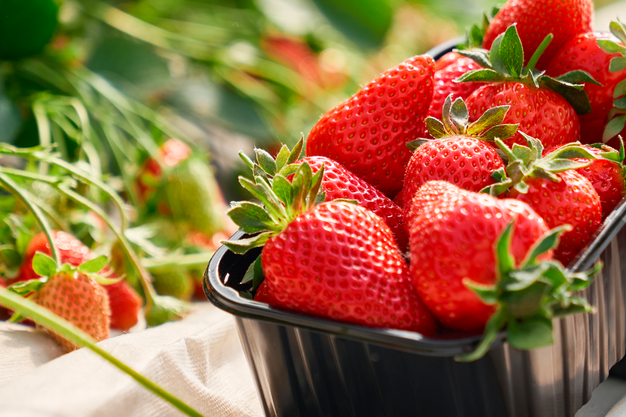The strawberry harvest in the Spanish province of Huelva has started with some delay this year compared to previous campaigns. "The harvest of the potted varieties has been underway for a month now, but that of the varieties planted on the ground is now starting to pick up," says Salvador Muñoz from Emusa Fruit. "This season, due to the drought, the planting was carried out a bit later because we were waiting to see what would happen with the water supply. The same applies to the nurseries, which delivered their plants later for the same reason."
To this we must add that the drop in temperatures is slowing the production down, although the good part, according to Salvador, is that "at the moment, there is quite a demand for strawberries in the European market."

"So far, the markets have been betting on the strawberries from Egypt and Morocco, but there's growing interest in acquiring more fruit from Huelva because the quality they are receiving has nothing to do with that of our production. In fact, as soon as our production starts peaking, Egypt will be pushed out because they cannot compete with Huelva's strawberry, and the number of days their product needs to reach Europe has an impact on its shelf life."
"From now on, the production will increase, and we anticipate that the peak in the production, which is usually reached in March, could be delayed a bit this year due to the delay in the planting. But because of this, we also hope that the campaign can last longer than usual."
"In fact, anticipating this situation, this year, in which we have been planting later at Emusa Fruit, we have opted for varieties that won't be as affected by the high temperatures in May to be able to reach the end of the campaign with quality fruit. We have decided not to use the most classic varieties, like the Fortuna or San Andrea, and we are growing strawberries like the Sayra, Marimbella, Limvalnera, Arwen, Fandango, or Calinda; all premium varieties that won't only make it possible to extend the harvest, but should also reach outstanding prices at times when they tend to drop, and with which we can reach the export markets all over Europe."
As for blueberries, Salvador says, "We are starting to harvest some new varieties which are now in their second year: the Cupla and the Kepler, but in general, the campaign is also delayed."
"We expect this to be a good year for blueberries, similar to last year, with good prices, despite the fact that the production was not very high. We are only hoping that the varieties will arrive on their expected dates so there won't be any overlapping, and we can avoid pressures on the supply, although it is still early to know what will happen."
"However, the fact that our campaign has been slightly delayed will come in very handy, because Peru has arrived later this year and this will prevent us from having to compete directly with them," says Salvador.
For more information:
Emusa Fruit
Service road A-49 (at around PK 55+350)
from HU-4102 to HU-4105
Niebla, Huelva, Spain
[email protected]
www.emusafruit.es
